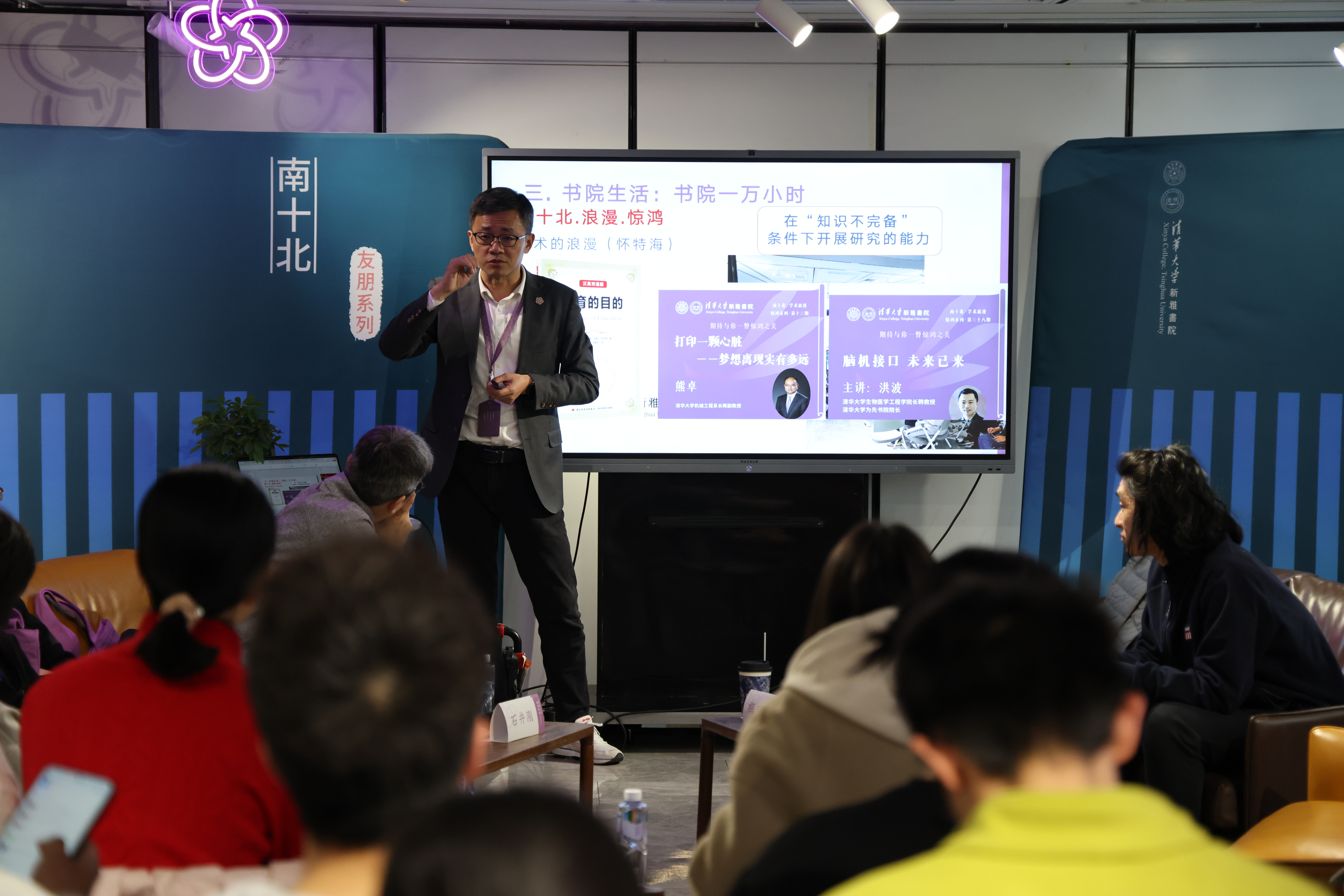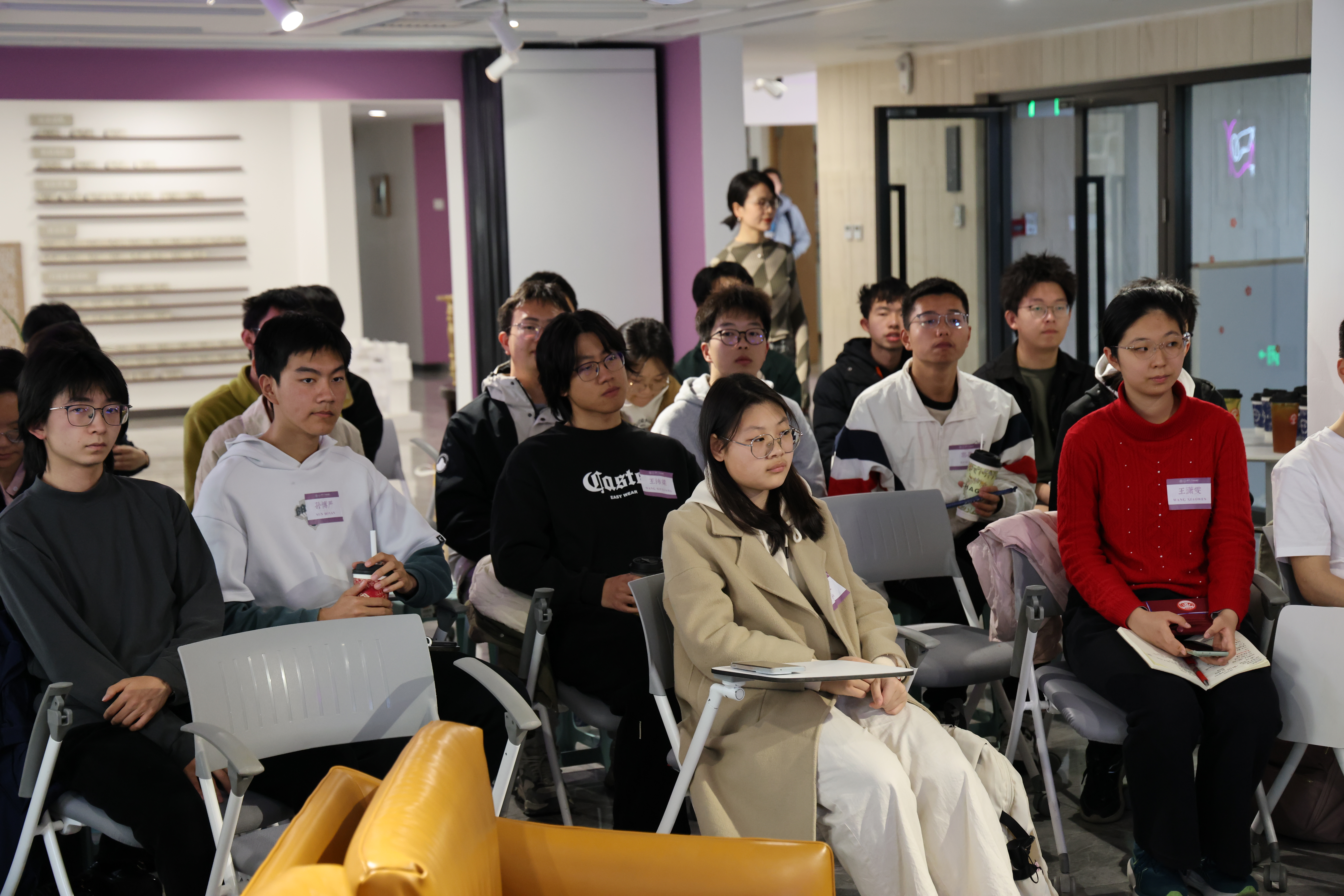As the old Confucian saying goes, it is such a delight to have friends coming from afar. On the afternoon of March 20, Director of the East Asian Academy for New Liberal Arts (EAA) at the University of Tokyo (UTokyo) Ishii Tsuyoshi led a delegation of faculty and students to Xinya College, with Dean of Xinya College Mei Ciqi welcoming them with an engaging, friendly gathering. The "liberal arts education" first established by UTokyo after the war a century ago resonates deeply with Tsinghua University's academic philosophy of "not being mere tools" and is rooted in Eastern classical wisdom, the classical texts on curriculum, philosophical inquiries into artistic practices, and immersive environment of residential colleges hallmarks of both institutions. As they sat down together, the faculty and students from two of East Asia's leading universities explored the meaning of human development and the ideal balance between specialization and the spirit of a broader base of knowledge in contemporary education.
Prof. Ishii began by hearkening to the two prior exchanges between EAA and Xinya College and expressed his joy at the opportunity to return yet again, explaining the foundational role of the College of Arts and Sciences in undergraduate studies following UTokyo educational reforms in the wake of World War I. Approximately 3,000 new undergraduates begin their studies in the College of Arts and Sciences every year and study there for two years before transitioning to specialized faculties like Economics, Science, and Arts. In 1999, UTokyo began turning with increasing frequency to partnerships with major Asian universities to explore the future of general education and create a new form of liberal arts founded squarely on the traditional wisdom of East Asia. EAA is an initiative founded by the University of Tokyo in conjunction with Peking University in 2019 for the purpose of cultivating Asian leaders for a common future and harnessing the wisdom of East Asian cultural circle to bridge cultural divides.

Prof. Ishii
Dean Mei then spoke of the educational practices and teaching environment of Xinya College and its innovative new liberal arts education shifting the traditional focus away from majors and a tendency to view individuals in terms of mere utility. According to Mei, Xinya fosters an atmosphere of opportunity that extends beyond the classroom, believing that "Students' growth should be based on tangible experiences" in a space residential colleges provide for students to let their imagination explore freely. And it is to this end that Xinya's Congyou initiative fosters interaction between teachers and students, Jinghong activities lead students to the forefront of academia, the "One Thing Plan" encourages students to engage, communicate, and learn from failure, and traditional labor-based study provides a wide range of hands-on opportunities for growth.

Dean Mei Ciqi
Afterwards, teachers and students from both schools had the opportunity to interact in a laid-back setting. Associate Professor Tanaka Yuki of the UTokyo Institute for Advanced Studies on Asia showed a particular interest in musical education and was met in kind by Xinya College student Tang Mengzhu, who was happy to introduce the professor to the wildly popular Shibei Band, a group of Xinya students known in recent years for their performances on campus and off. Zhang Shanying, a student majoring in world literature, expressed an interest in learning more about how UTokyo's College of Arts and Sciences approached the subject of philosophy. Professor Ishii emphasized that a key component of any liberal arts education was the study of classical texts and the College of Arts and Sciences encouraged students to explore the classics, from Plato to Eileen Chang, and immerse themselves in a variety of contexts and cultures. Xinya College student Wang Zhiang was particularly impressed by the multilingual abilities of EAA students, believing the best way to understand another culture was by learning its language, a perspective shared by UTokyo students.
Wang also voiced his misgivings about how to balance a general education with the choice of a clear specialization, a confusion based on personal experience: After enrolling in an astronomy class out of simple interest, he found that the level of dedication required challenged his ability to keep up with his own major. Xinya College's Ge Jiani expressed similar sentiments, finding time devoted to general education a burden on her choice to study law, to the point that she found her general aspirations for life buckling under the strain of having to make important career and life decisions. It was a dilemma widely shared by EAA students, with one such student by the name of Arima Naoki suggesting that excessive worry about the future did little good and advocating instead for living well in the present. Dean Mei replied that a general education was not a question of a few courses but rather about maintaining a broad perspective.

Xinya College student Xu Ke wondered aloud how UTokyo students chose their majors after completing general courses in the College of Arts and Sciences. Student Akira Kosugi replied that students choosing a major at UTokyo were influenced by the courses they'd taken and their academic performance, which resulted in increased academic pressure. Xinya College student Liu Peng expressed the belief that as the system of higher education matured, students would gain a clearer understanding of themselves and be more courageous in following their hearts.
Students from UTokyo also asked their peers from Xinya if they found it stressful as top achievers to live together in a dormitory? Ge Jiani responded with "Twenty minutes in the park", finding solace in nature whenever she finds the things happening around her a bit too much to bear. Wei Kunjing's take was a little different: although his roommates were all top students, interacting with them had gradually taught him to accept himself, embrace his own life, and not let the brilliance of others overshadow his own. Finally, Yu Jianing said that once she had recognized the importance of her self-growth and transformation, she ceased to find the external pressures burdensome.
In spite of professional stress seeking to hamper our ability to see the big picture, GPA-induced anxiety stifling self-exploration, and the haze of employment prospects taking a toll on human warmth, this talk stretching across the East China Sea brings us back to education's core. It is precisely in these seemingly "useless" moments that we might find the very essence of general education.